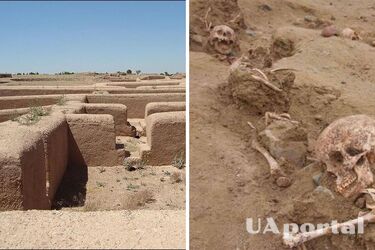Archaeologists: In ancient times, the elite had a family ritual that involved the sacrifice of children

A unique discovery in Mexico has shed new light on the cruel rituals of ancient civilizations. Archaeologists have discovered that a child found in the ancient Mexican temple of Pakime was sacrificed as part of a complex religious rite.
Genetic analysis of the child's remains showed that his parents were very close relatives. Scientists assume that such a sacrifice was part of a ritual aimed at strengthening the power of an elite family and consecrating a sacred building, Archaeology News writes.
You may also be interested in: Victims of the Black Death: Thousands of green skeletons found in Germany (photos)
Paquima is one of the largest archaeological sites in North America. It was a large city with a developed culture that flourished around 1200-1450 AD. Many artifacts have been found here that testify to the high level of development of the Mogollon civilization.
Child sacrifice was a common practice in many ancient cultures. It was believed that in this way one could appease the gods and ensure the well-being of the community. However, the study of sacrifices in Pakima showed that these rituals had their own characteristics and were related to the special role that this child played in the social structure of the community.
The new discovery is important for understanding ancient civilizations. It allows scientists to dive deeper into the religious beliefs and social structure of people who lived thousands of years ago.
If you want to get the latest news about the war and events in Ukraine, subscribe to our Telegram channel!
